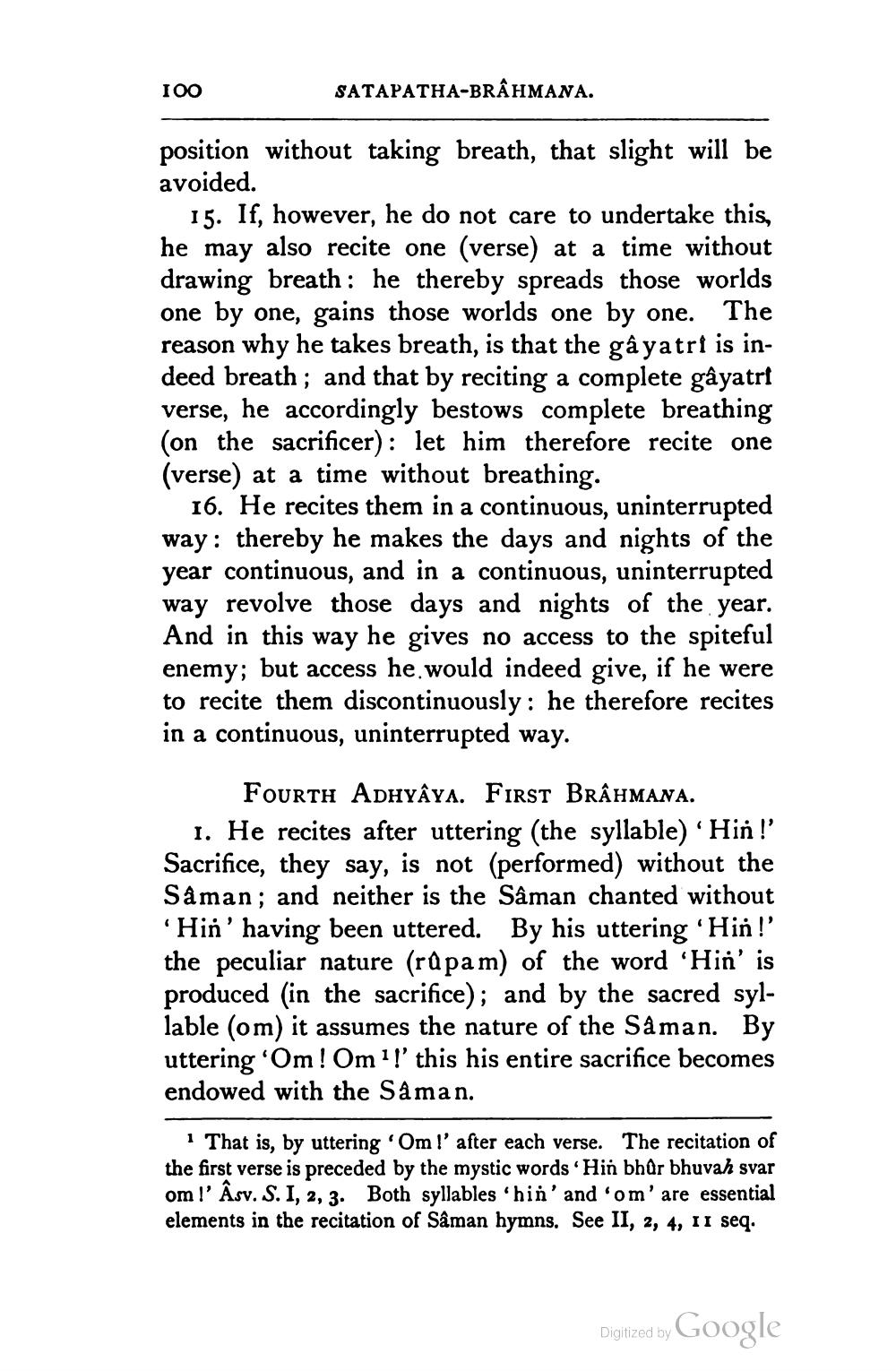________________
IOO
SATAPATHA-BRAHMANA.
position without taking breath, that slight will be avoided.
15. If, however, he do not care to undertake this, he may also recite one (verse) at a time without drawing breath: he thereby spreads those worlds one by one, gains those worlds one by one. The reason why he takes breath, is that the gayatri is indeed breath ; and that by reciting a complete gâyatri verse, he accordingly bestows complete breathing (on the sacrificer): let him therefore recite one (verse) at a time without breathing.
16. He recites them in a continuous, uninterrupted way: thereby he makes the days and nights of the year continuous, and in a continuous, uninterrupted way revolve those days and nights of the year. And in this way he gives no access to the spiteful enemy; but access he would indeed give, if he were to recite them discontinuously: he therefore recites in a continuous, uninterrupted way.
Fourth ADHYAYA. FIRST BRÂHMANA. 1. He recites after uttering (the syllable) 'Hin!' Sacrifice, they say, is not (performed) without the Saman; and neither is the Sâman chanted without
Hin' having been uttered. By his uttering ‘Hin!' the peculiar nature (rů pam) of the word 'Hin' is produced in the sacrifice); and by the sacred syllable (om) it assumes the nature of the Saman. By uttering 'Om! Om 1!' this his entire sacrifice becomes endowed with the Saman.
1 That is, by uttering Om l' after each verse. The recitation of the first verse is preceded by the mystic words Hin bhûr bhuvah svar om l' Asv. S. 1, 2, 3. Both syllables 'hin' and 'om' are essential elements in the recitation of Sâman hymns. See II, 2, 4, 11 seq.
Digitized by Google




